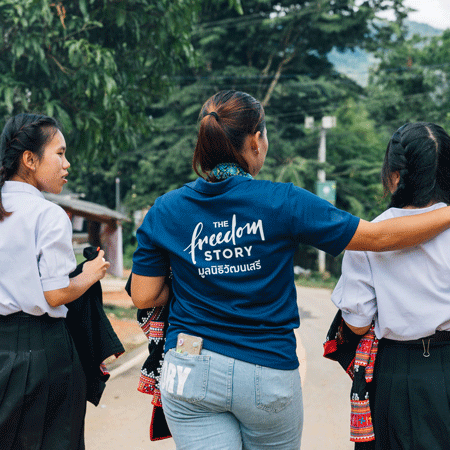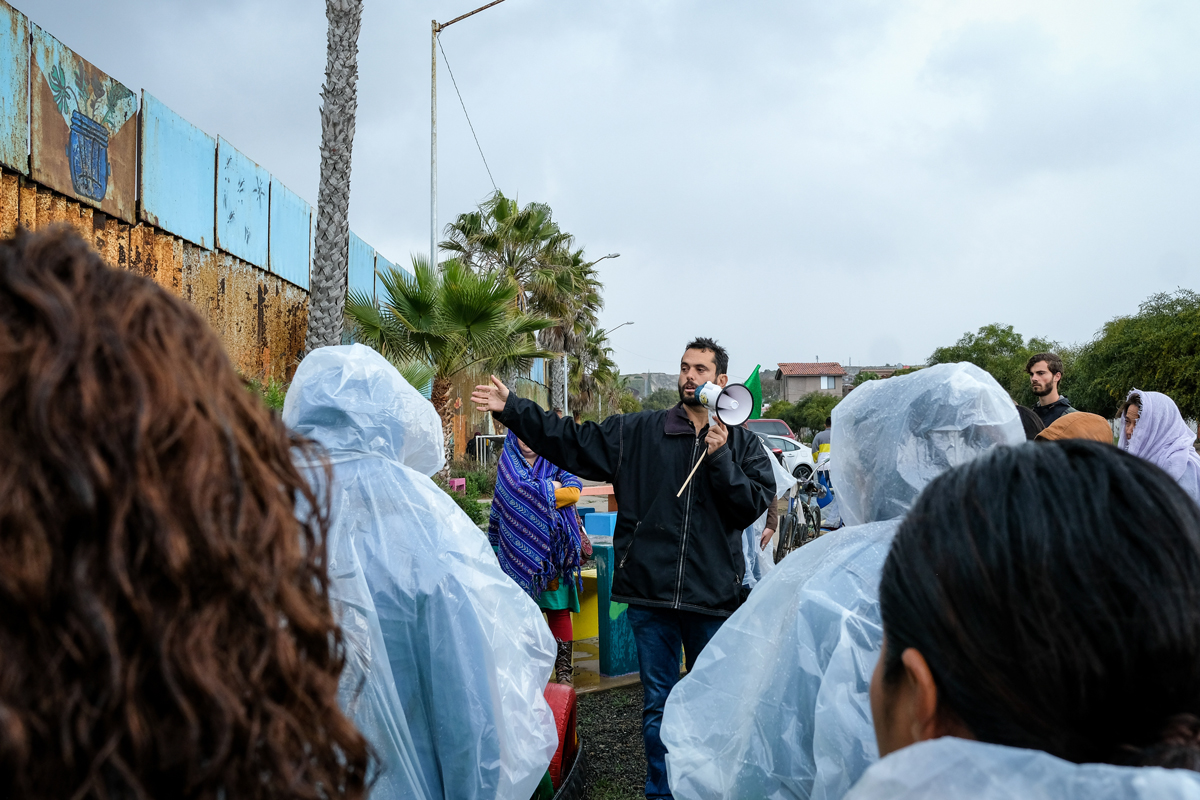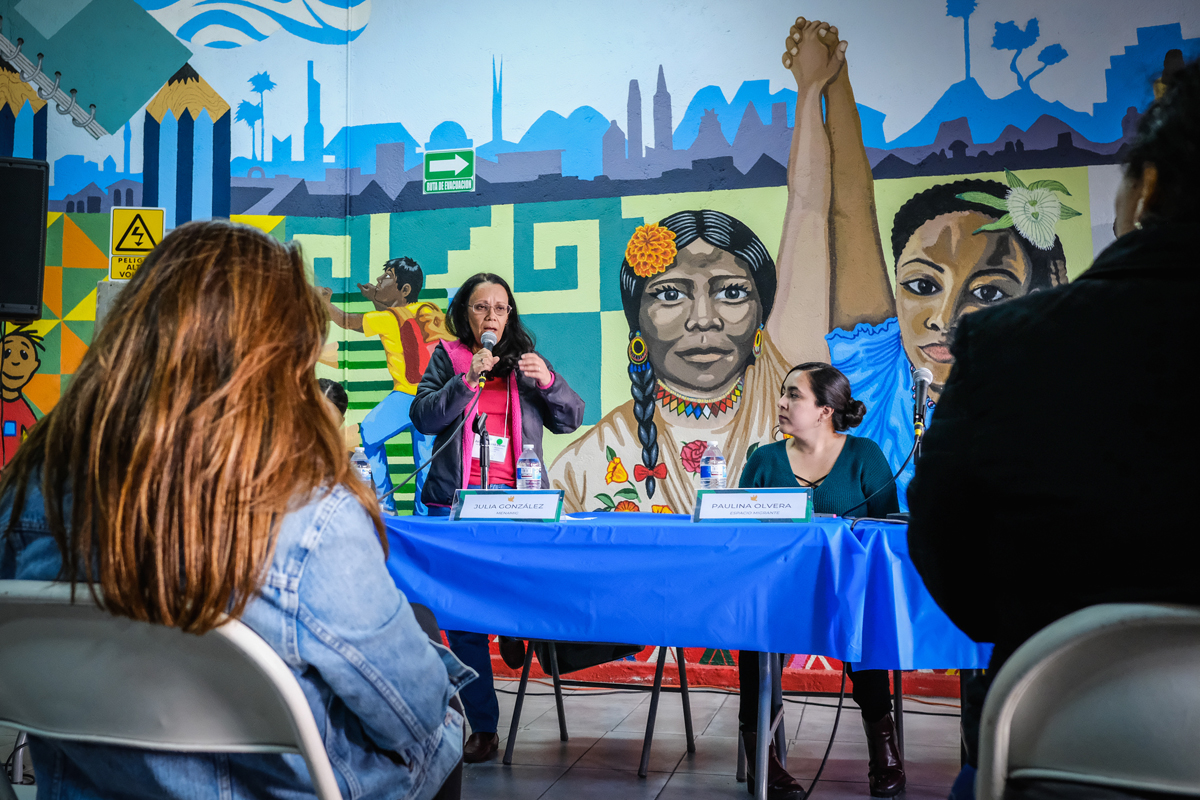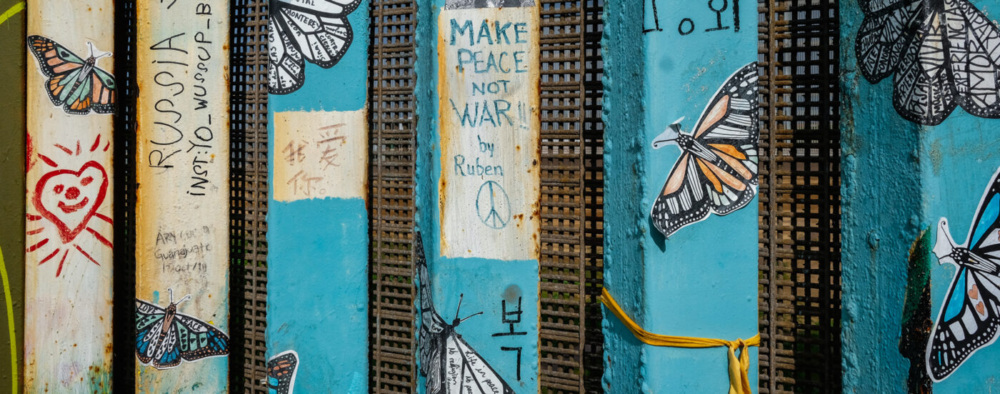
Segurança e bem-estar
Segurança e bem-estar, Poder da juventude
Em 2018, Al Otro Lado estava em uma encruzilhada. A organização de serviços humanitários e legais, que atende deportados, migrantes e refugiados – incluindo crianças e jovens – em ambos os lados da fronteira EUA-México, estava operando com uma equipe totalmente voluntária desde 2012.
Mas esse modelo não era mais sustentável. Milhares de migrantes estavam chegando à fronteira em Tijuana, México, onde a organização está sediada, e a Al Otro Lado decidiu levar o governo dos EUA ao tribunal para preservar o direito dos migrantes de buscar asilo. Ela precisava de funcionários pagos em tempo integral. O problema era que a Al Otro Lado não tinha financiamento suficiente.
Então, quando o Fundo Global para Crianças se conectou com a organização naquela época e ofereceu financiamento flexível, isso foi “salvador de vidas”, disse Nicole Ramos, Diretora do Al Otro Lado. Projeto de Direitos de Fronteira.
“O GFC foi um dos nossos primeiros financiadores, antes de realmente termos algo sustentado”, Nicole lembrou. “Ter esse suporte extra, e especialmente em um momento tão crítico quando estávamos lidando com as caravanas de migrantes, lidando com o litígio, foi incrível.”
Agora, a Al Otro Lado tem 40 funcionários remunerados e escritórios em Tijuana, Los Angeles e San Diego. Nos últimos três anos, a organização ajudou milhares de migrantes e refugiados, incluindo menores desacompanhados. Ela também expandiu seus programas, que incluem fornecer serviços jurídicos gratuitos e apoio humanitário, educar refugiados em Tijuana sobre o processo de asilo dos EUA e reunir crianças que foram separados à força dos seus pais com suas famílias.

Al Otro Lado também tem entrou com ações judiciais importantes defendendo os direitos dos migrantes e requerentes de asilo. Em setembro de 2021, a organização ganhou o processo A empresa entrou com uma ação contra o governo dos EUA por rejeitar requerentes de asilo quando um juiz federal decidiu que as autoridades americanas devem processar os requerentes de asilo quando eles chegam aos portos de entrada.
“Foi um tornado/redemoinho”, disse Nicole.
Nicole atribuiu parte do sucesso do Al Otro Lado à sua participação na rede de organizações que fazem parte da GFC Iniciativa Girls Experiencecing Migration, que é apoiado por Fundação Tides. Esta iniciativa reúne um grupo de 14 organizações da sociedade civil na Guatemala, México e Estados Unidos que estão comprometidas em proteger a segurança e os direitos das adolescentes migrantes.
No primeira convocação ela compareceu à iniciativa, lembrou Nicole, e conheceu outros ativistas que trabalham na região para apoiar migrantes e refugiados.
“Mantivemos conexões com várias dessas organizações cujas missões ou populações tendem a se alinhar desde aquela conferência, assim como construímos novos relacionamentos”, disse Nicole. “Foi realmente transformador.”

No início deste ano, quando um dos clientes de Al Otro Lado revelou que seu irmão de 16 anos, que ainda estava na Guatemala, corria risco de ser sequestrado, Al Otro Lado recorreu à rede para obter ajuda. Uma das organizações no sul do México garantiu que o adolescente pudesse viajar com segurança da fronteira Guatemala-México para Tijuana, onde Al Otro Lado o ajudou a se reunir com sua irmã nos EUA.
Al Otro Lado continuou a evoluir durante a pandemia. Como a organização está atualmente fazendo muito do seu trabalho jurídico remotamente, ela converteu parte de seu escritório em Tijuana para um centro de aprendizagem precoce para crianças em colaboração com uma organização chamada PILAglobal.
A mudança para interações virtuais também permitiu que Al Otro Lado e dois aliados, Direitos Humanos Primeiro e Aliança da Ponte Haitiana, para se conectar com migrantes em diferentes portos de entrada. Eles distribuíram uma pesquisa online em espanhol, inglês, francês e crioulo haitiano que pergunta sobre necessidades médicas, acesso a alimentos e experiências com violência no México. Mais de 23.000 pessoas responderam.
“A diversidade de nacionalidades e idiomas é algo que conta sua própria história, mas o nível de violência ao qual as pessoas são submetidas enquanto esperam na fronteira é absolutamente impressionante”, disse Nicole.
“Dois terços dos nossos clientes foram vítimas de violência, ameaças ou extorsão enquanto esperavam na fronteira.”
Os dados coletados pela pesquisa permitiram que Al Otro Lado e seus aliados identificassem pessoas em necessidade imediata e fortalecessem seus esforços de advocacy, estabelecendo-se como fontes confiáveis de informações sobre a situação na fronteira.
Com base em sua experiência com a GFC, Nicole disse que encorajaria outros financiadores a procurar organizações de base “que precisam de um pequeno impulso” e encontrar maneiras de ajudá-las a crescer além do apoio financeiro, inclusive construindo redes.
“Sem um pouco de incentivo, não teríamos conseguido chegar onde estamos hoje, e onde estamos hoje é que acabamos de ganhar um processo enorme contra o governo federal”, disse ela. “Nós nem tínhamos um escritório. Nós só tínhamos ideias, tínhamos alguns programas, estávamos trabalhando muito duro, e ter aquele voto de confiança da GFC foi incrível.”
Foto do cabeçalho: Uma imagem de um muro na fronteira EUA-México. © Jeff Valenzuela
